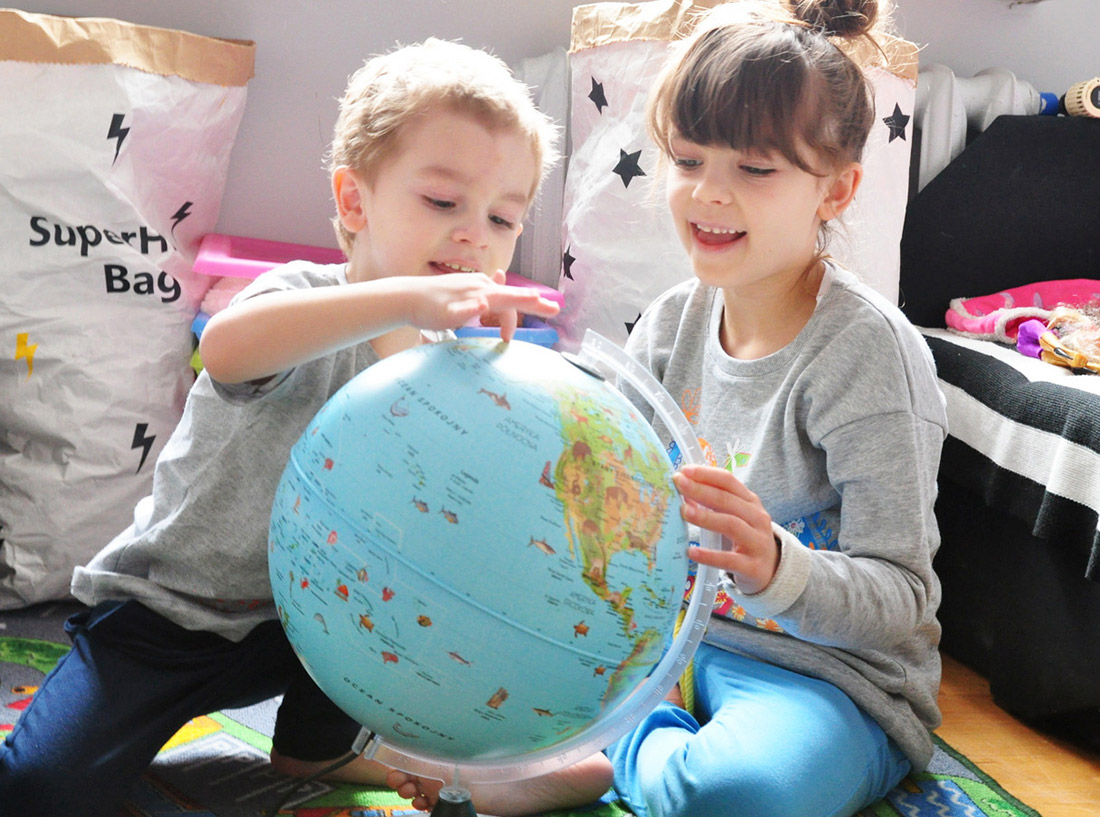
From birth, toddlers show interest in the world around them. They follow toys with curiosity and eagerly explore their textures. As they grow older, a child's interests begin to become more specific, and at school, they develop into a true passion. How can you help your child develop their hobbies?

Child's interests – what is worth remembering?
The birth of a child is a significant event in every parent's life. Both mother and father must ensure the baby's safety and provide the right conditions for him to develop his interests. It's worth remembering that these interests aren't complicated at first. A young child is primarily interested in his surroundings, which he explores through touch and sight. As his motor skills develop, he begins to take an interest in increasingly complex activities, such as drawing or solving puzzles .
What's worth remembering when developing your child's interests? Above all, patience and commitment are key, as children grow at different rates. Some toddlers eagerly explore new places and quickly acquire new skills. Others, unlike their peers, prefer to devote significantly more time to a single activity. By supporting them and encouraging them to use new toys , you'll make them eager to take on new tasks, thus finding a passion that will last for years.
Young children love to imitate adults. As soon as you notice your little one enthusiastically copying your movements, leverage their involvement to help you complete household chores. This will help your little helper practice fine motor skills and become much more aware of their surroundings.
What interests might they have? A variety!
The preschool and early school years are a time when a child's tastes and psyche are shaped. Children increasingly feel inspired and are even more eager to try new things. Sports and physical activity, in the broadest sense, are the most popular among young children. Cycling , playing catch, swimming, or playing soccer develop their fitness and motor skills, and also teach them the principles of healthy competition. Other common hobbies include:
- nature – from fascination with dinosaurs to independent searches for interesting insects and plants;
- space – looking through a telescope in the evening and following the movements of the stars sometimes turns into a lifelong passion;
- drawing – clumsy scribbles cease to be chaotic, and the compositions created become more and more complicated;
- music and film – frequent viewings and playing the same songs inspires the child to search for information, discover new works, as well as sing and dance;
- logical puzzles – easy puzzles and riddles provide a lot of fun and at the same time teach creativity and perseverance.
Remember that a child's interests can change incredibly quickly. One day they might devote their time solely to drawing, the next they might enjoy birdwatching or cloud-watching. Therefore, support them in finding hobbies and don't hinder their development by forcing them into activities that provoke resistance or anger.

Developing interests and extracurricular activities
Is it worth signing your child up for extracurricular activities? Of course, yes – they'll not only help your child develop their interests but also make new friends and gain confidence in making decisions. However, remember that some workshops or activities require specific preparation, including purchasing sportswear or art supplies. Handy backpacks , for example, will help you store them, ensuring nothing gets lost and your child is prepared for the next activity.
What interests can be developed through extracurricular activities? Primarily, skills related to foreign languages, but also creativity and imagination. School theater performances, where they must demonstrate their memory and ingenuity, are very popular among children, as are math clubs, which prepare young researchers for Olympiads and competitions. If you need guidance on what to consider when choosing extracurricular activities, check out our parent's guide – it will help you learn what to look for when searching for courses and workshops.

Child's interests - how to organize time according to them?
Remember that rest and sleep play a crucial role in a child's proper development. The accumulation of responsibilities and tasks can overwhelm them, leading to exhaustion and a loss of motivation. Therefore , when searching for extracurricular activities, remember to strike a balance between relaxation and learning. This will make your child much more likely to pursue their interests. They'll also have more energy to spend time with friends or study for tests and quizzes.
Extracurricular activities are a great way to develop interests. They not only reinforce previously acquired knowledge but also broaden a child's worldview and teach new skills. Therefore, as the school year begins, review your child's schedule and decide with them whether to sign up for clay modeling workshops or basketball practice.


Podziel się:
How to make a decoration for a child's room - a pastel cloud made of yarn
How to make a decoration for a child's room - a pastel cloud made of yarn